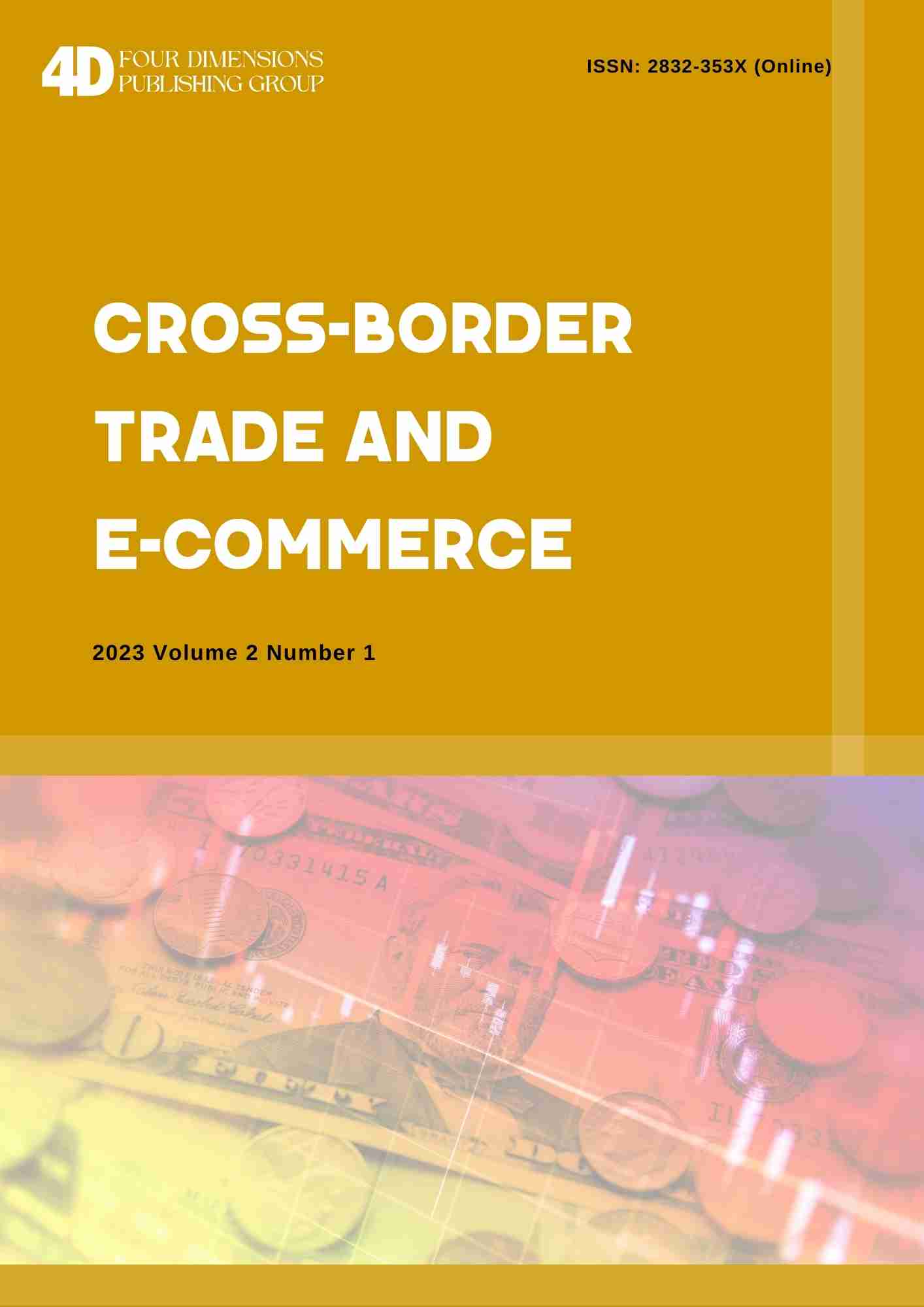
Cross-Border Trade and E-commerceOpen Access
Cross-Border Trade and E-commerce is an international peer-reviewed journal that publishes original and high-quality research papers in all related areas. All papers published will be open access to all readers. To build a platform for scientific research and academic exchange for scholars, focusing on the development and research, introducing worldwide research, theory and practice, and promoting international exchanges.
ISSN: N/A (Print)
Frequency: Bimonthly
ISSN: 2832-353X (Online)
Website: https://doi.org/10.55571/cte
Email: cte@4dpublishinggroup.com
Indexing and Abstracting: Google Scholar; CrossRef; ResearchBib; WorldCat; CiteFactor
Email: cte@4dpublishinggroup.com
Indexing and Abstracting: Google Scholar; CrossRef; ResearchBib; WorldCat; CiteFactor
Strategies For Advancing Bengaluru As Smart City: a Case Study
DOI:https://doi.org/10.55571/cte.2023060
Authors:Dinken Paksok, Jumnya Riba, Deepak Kr. Powrel, Bini Kiron, Tinu Lusi
Affiliation:
North Eastern Regional Institute of Science and Technology, Nirjuli, Arunachal Pradesh, India
Shri Pillappa College of Engineering, Bengaluru, Karnataka, India
Information: Received: May 17, 2023 / Accepted: June 26, 2023 / Published: July 30, 2023
Authors:Dinken Paksok, Jumnya Riba, Deepak Kr. Powrel, Bini Kiron, Tinu Lusi
Affiliation:
North Eastern Regional Institute of Science and Technology, Nirjuli, Arunachal Pradesh, India
Shri Pillappa College of Engineering, Bengaluru, Karnataka, India
Information: Received: May 17, 2023 / Accepted: June 26, 2023 / Published: July 30, 2023
Abstract:The concept, origin, development, and history of Smart Cities were studied in conjunction with the backdrop, town, and economic characteristics of Bengaluru. The idea of Smart Cities is a "booming" global phenomenon, with Smart City initiatives being implemented worldwide. After the 2000s, the term "smart" gained popularity in urban policy making to describe the skillful use of information technologies (IT) to improve a city's infrastructure and service functionality and efficacy. With significant contributions from various technologies, including computer science, information technology, remote sensing, and enhanced multimedia, the idea of Smart Cities is a recent one in our country. This project explores the foundation of a Smart City by examining existing relevant parameters, such as electricity, solid waste management systems, water supply, and transportation, in Kondashettihalli and Chikkaballapur areas only due to the vastness of the city and the deciding parameters. Bengaluru's spatial expansion is examined, the shortcomings of the current situation are contrasted with those of a Smart City, and lastly, planning plans and recommendations are provided.
Keywords:Information technology; Smart city; Spatial Growth; Transportation; Water supply
Cite This Article:Paksok D, etc. Strategies For Advancing Bengaluru As Smart City: a Case Study. Cross-Border Trade and E-commerce. 2023, 2(2): 18-36. https://doi.org/10.55571/cte.2023060
Keywords:Information technology; Smart city; Spatial Growth; Transportation; Water supply
Cite This Article:Paksok D, etc. Strategies For Advancing Bengaluru As Smart City: a Case Study. Cross-Border Trade and E-commerce. 2023, 2(2): 18-36. https://doi.org/10.55571/cte.2023060
